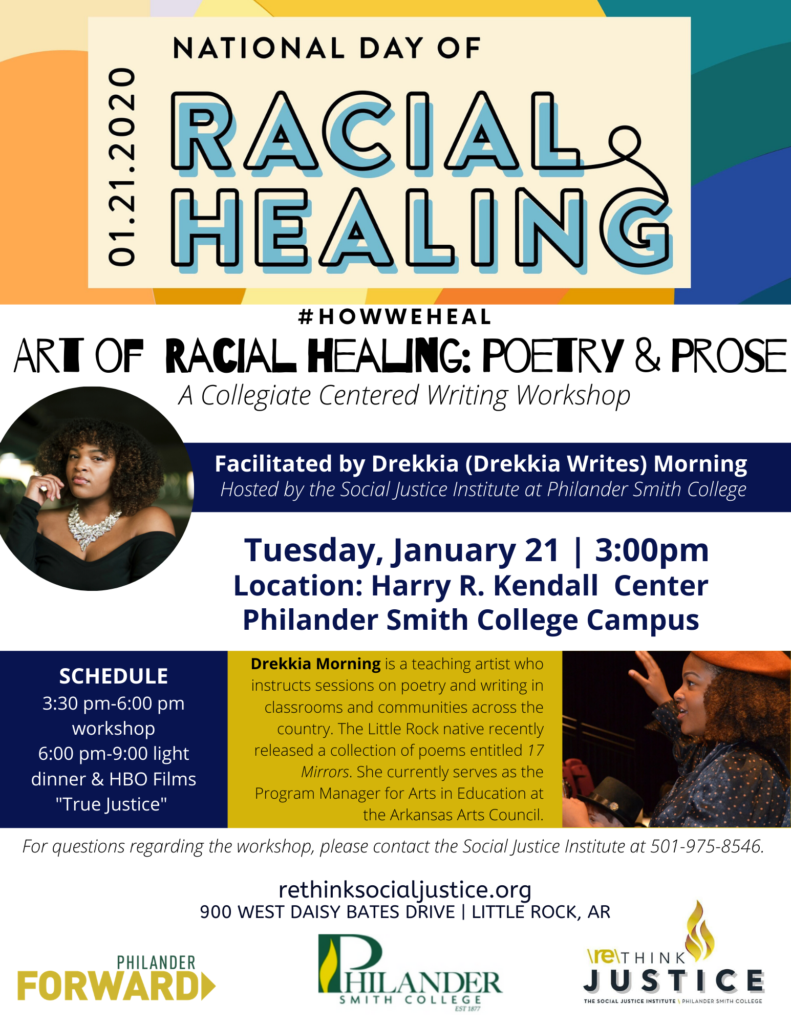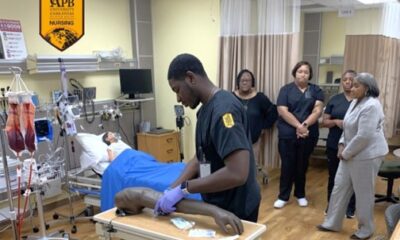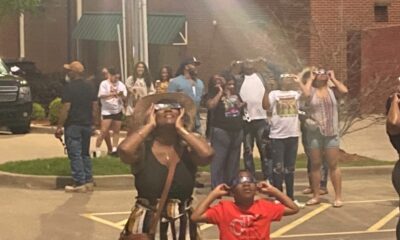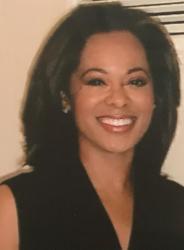Black History
The National Lynching Memorial Brought Two Arkansas Organizations Together to Heal the Past

The National Day of Racial Healing, which the W.K. Kellogg Foundation started as part of its Truth, Racial Healing & Reconciliation campaign, provided America another opportunity today to repair fissures in its disturbingly fractured sociological landscape. This year’s effort followed the Rev. Dr. Martin Luther King Holiday and capitalized on the urgency many prominent leaders expressed about a racially divided America.
“We are at a crossroads, and we are on the verge of a very dangerous period, and we will have to choose where we’re going,” Rev. Al Sharpton said at the National Action Network’s King Holiday celebration held at the Mayflower Hotel in Washington, D.C.
The son of the slain Civil Rights Leader, Martin King, III, said, “Let’s keep on working, we are going to work tirelessly. Hate will not make America great, but it is love that will make America great.”

In Arkansas, Kwame and Clarice Abdul-Bey helped organize a two-day event dedicated to racial healing. The couple started working to mend racial rifts a few years ago when they founded the Arkansas Peace and Justice Memorial Movement which documents the locations in Pulaski County where incidents of racial violence, including lynching and riots, occurred.
“There is a map of lynching sites, and it has who the person was who was lynched and the locations,” Clarice Abdul-Bey explained. “In Pulaski County, there is a total of 27 with the Wrightsville Boys being part of that 27.”
The Abdul-Beys were inspired by the Equal Justice Initiative (EJI) founded by widely acclaimed attorney Bryan Stevenson who built the National Memorial for Peace and Justice or the Lynching Memorial as it has become known. The first marker recognizing a site of racial violence in Arkansas will be placed in May, memorializing lynching victim John Carter who was hanged from a telegraph pole in Little Rock. The mob dragged his body down Main Street, and order was not restored until the Governor called in the National Guard.
“We have been very blessed and fortunate that we have not had in Pulaski County much resistance from landowners saying, ‘No, you cannot place this marker,’” Abdul-Bey said.
Kwame Abdul-Bey added there has been a “tremendous” response to their project from fellow Arkansans who have visited the national memorial in Montgomery, Alabama.
He said, “We came back from the Museum in late August to do what we’re doing. Since we’ve been back, we have met dozens of people who have gone just as we have, and they have come back with the same mission.”
The Power of Partnership
They have formed a partnership with ‘Just Communities of Arkansas’ and its Executive Director, Donald Wood. Early in his leadership at JCA, Wood mentioned his interest in working with EJI. He had read Stevenson’s book and viewed Little Rock’s proximity to Montgomery as a harbinger of collaboration.
Wood recalled, “My wife and I went to the Memorial, and I came back, and at my next board meeting I wanted to talk in earnest about how we could bring the remembrance project to Pulaski County.”
Friends suggested he reach out to the Executive Director of the Social Justice Institute at Philander Smith College, Tamika Edwards at Philander Smith College in Little Rock. Edwards passed Wood’s information to the Abdul-Beys.
“They responded immediately with a wonderful email with bullet points,” Wood said. “We just immediately clicked and hit it off.”
That was in June 2019. Together they completed EJI’s “comprehensive and extensive” application process and by October they were accepted as a facilitator for community remembrance projects in all of Arkansas. Six counties in the state are already working on projects.
“I really do feel that Arkansas is a very special place, but we still have a haunted and horrific history just like the other southern states and most states in our country,” said Wood, an Arkansas native who has lived around the country and abroad. “I hope we can model for the rest of the country what it looks like to lead a truth and reconciliation movement. I don’t believe it can only be transformational for the state, but for the rest of the country as well.”
And, an increase in reports of racial violence around the country indicates a pressing need for community conversations dedicated to healing.
“I do think we are in a unique time right now, socially and politically,” Wood remarked. “As our world seemingly becomes more and more accessible to people because of the internet and the connections we have through digital media, we are almost forced, more than ever to be a community, and it’s up to us to decide how we will commune, whether that’s inclusively or exclusively.”
The Abdul-Beys and Wood at JCA have a plan and a national partner with worldwide respect. It’s a promising combination at a time when courageous leadership to address lingering injustice in Arkansas and America is essential to prevent a repeat performance of the acts that created such a painful past.

-

 Featured12 months ago
Featured12 months agoArkansas Sheriff Who Approved Netflix Series Says He Stayed ‘In His Lane’
-

 HBCUS12 months ago
HBCUS12 months agoSenator Boozman Delivers $15 Million to Construct New UAPB Nursing Building
-

 News12 months ago
News12 months agoMillions In the Path of The Total Solar Eclipse Witnessed Highly Anticipated Celestial Display
-

 Featured9 months ago
Featured9 months agoCalifornia Is the First State to Create A Public Alert for Missing Black Youth
-

 Featured9 months ago
Featured9 months agoAfrican American Leaders Stay the Course Amid Calls for President Biden To Bow Out of Race
-

 Featured9 months ago
Featured9 months agoThe Debate Fallout Lands on Both Candidates









